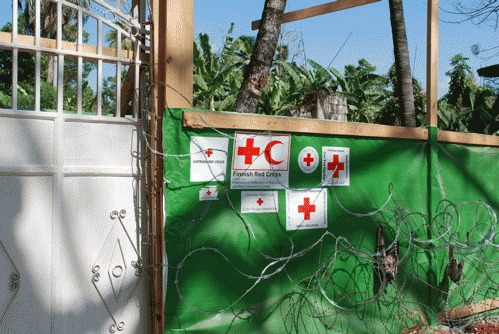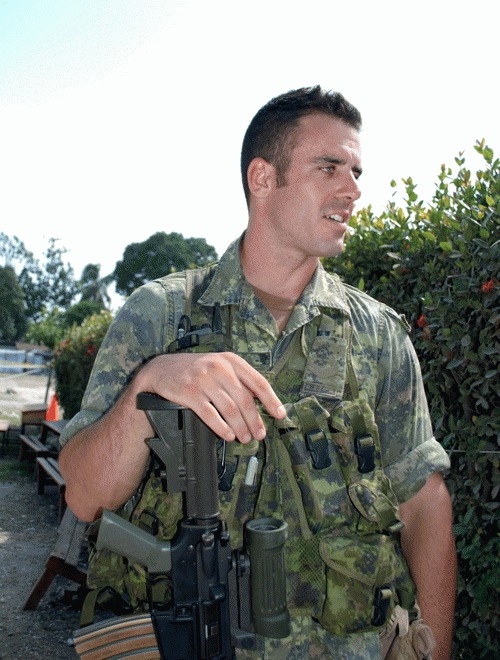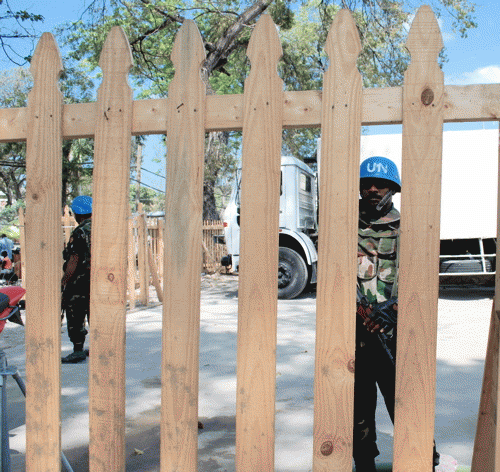There is no doubt that Haiti was riddled with corruption long before the January 12 earthquake that claimed up to 300,000 lives-- a count certain to go higher according to some observers here. But it is perplexing that the State Department would choose to beat up its relief recipient while Haiti is down for the count. As a result of this very public slap in the face, Preval is demanding that his presidency have veto power over donor-funded reconstruction projects. What the Haitian people do not need is tension between relief partners, but tempers and frustrations are ramping up here.
There is plenty of blame and criticism to go around, but that being said, the humanitarian situation is so dire it seems as if there may be no comprehensive solution. Aid workers who have been here for years are bitter and angry. It is all but impossible to come to an understanding of what is wrong and what is right about aid distribution here.
The United States is Haiti's biggest donor and the country is literally overrun with NGO's. Duval has suggested that they simply stop coming. Their effectiveness here is questionable from what we have observed. There are an estimated 60 to 80 foreign NGOs in the Leogane area alone. They have erected a United Nations' guarded compound and there is no doubt that the IDP camp in central Leogane is well run and supplied--for now. Walk through the sugar cane fields to the highway that cuts around the main road and you will find the "City of Ranyon," Creole for the "worn out city." It is almost within shouting distance of the main NGO compound and the residents do not have tents. Structures are built out of mats and anything else that can be used, but are not waterproof, and the rains are weeks away.
Common medical complaints include diarrhea, diabetes, nervous disorders, fevers, headaches, skin and vaginal infections and anemia. Doctors without Borders visited the tented camp across the road from the "City of Ranyon", and treated three patients, according to camp coordinator Jean Marie.
He asked for tents for the 250 families living in "Rayon" fifteen days ago.
Medical supplies for both camps include several cluttered shelves of common bandaging materials and antiseptics.
The good news is that Franklin Graham's organization, Samaritan's Purse, has installed a water well and is building latrines for the 2500 people camped here. Leogane is in ruins, but camp residents can still return to their farms to pick vegetables and fruit.
Canadian Corporal Eric Poirier did not hold back when asked about the humanitarian aid situation in Leogane proper. His unit is on guard duty there.
"All of the resources are in the wrong place," he said. "These people are used to getting one meal a day and they are being fed three times a day by the NGOs. Meanwhile people in other areas are going hungry."
Poirier says the local Haitian officials are skimming 70 percent of the aid dollars coming in. Leogane has not received 25 percent of targeted aid.
This is not the only time we have heard this story. A relief worker who is working in Jacmel told us he was imprisoned for refusing to turn over 50 percent of his organization's funds to a local Haitian official. The aid worker is married to a Haitian woman and has been living here for eight years. He says it is getting to be impossible to fly relief supplies into Jacmel because of extortion by Haitian officials.
When the Haitian District engineer in Leogane, Ruddy DuViviers, saw us talking to the Canadian soldier, he pulled us aside and accused the NGOs of being "Water Mafia." DuViviers said the NGOs were charging the population for water. That was a pretty heavy counter-charge, so we checked it out.
DuViviers was lying. The Spanish Red Cross has installed a sophisticated well, chlorine filtration, and a distribution system that was providing pure drinking water for the camp for free. The French organization, ACF, has a less sophisticated system down the road. All of the water is free.
There is a curious situation in Leogane that has the UN guarding two water bladders from access by the locals. Haitian officials say it is flooding the street when they use it. 90 percent of Leogane is flattened, so it is hard to fathom why some water in a rubble strewn, dusty street can be a problem.
There are two parallel roads going south to Jacmel from Leogane. Less than an hour's drive south lays the village of Macassin. Macassin is on the road less traveled. It has been totally bypassed by humanitarian aid except for 1200 blue tarps that shredded in the last windstorm. The surviving tents are leaking like sieves and the rains have not hit with full force yet. Macassin is only a small example of the scope of this disaster, which is truly biblical.
The US company, Tarpaflex, supplies most of the blue tarps in the Western world. The majority of all tarps are made in China. We found donated blue tarps, made in China, on the black market in Port-au-Prince and got a shot of the packaging.
(Note: You can view every article as one long page if you sign up as an Advocate Member, or higher).











